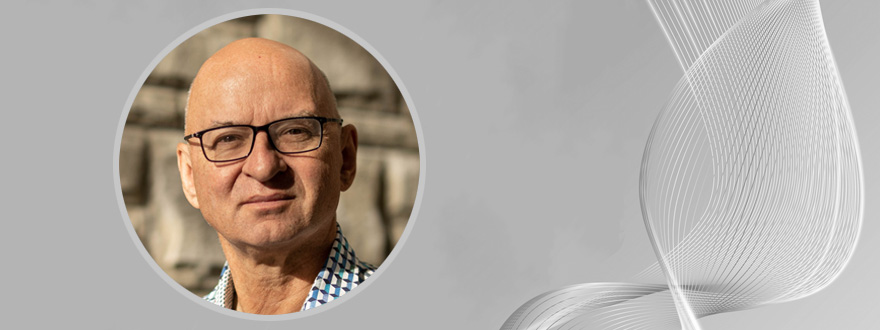Honours: Award recipient shares education insights

By Communications
Dr. Michael Rieder is a Professor with the Departments of Paediatrics, Physiology and Pharmacology and Medicine at Schulich School of Medicine & Dentistry. He recently received the Distinguished Service and Education Award from the Canadian Society of Pharmacology & Therapeutics (CSPT). In this Q&A, Rieder gives us some insights into his education philosophy.
Q. What is the Distinguished Service and Education Award?
The Distinguished Service and Education Award was created in 2005 to recognize exceptional contributions to service and education contributions in the fields of clinical and basic pharmacology. Since its inception, the award has only been given out eight times.
Q. Can you speak to the honour it is to receive such an award?
It is humbling to find myself ranked among the greats in Canadian pharmacology, such as Professors Jean Grey and Kerry Goralski from Dalhousie, and Bruce Carleton from UBC as well as Western's own Dr. George Dresser. As an academic, one of the highest honours you can achieve is to stand with your peers, and I count myself privileged to be among the colleagues who have received this singular honour.
Q. Provide some insight into the service initiatives you have undertaken?
Over the past several decades, I have been privileged to work with a number of local, national, and international groups. Locally at Western, I served as the Chair of the third year Clinical Clerkship for 14 years, during which we developed an integrated clinical clerkship that was seen as a model nationally. I have served as the Chair of the Division of Paediatric Clinical Pharmacology and subsequently the university-wide Division of Clinical Pharmacology, working to create the largest Division of Clinical Pharmacology in North America here at Western.
Nationally, I served as Chair of the Royal College of Physician and Surgeons of Canada's Clinical Investigation Program National Advisory Committee, where I led a revision of the standards and processes for training and certifying clinician scientists in Canada. I also served to create and Chair the Canadian Paediatric Clinical Pharmacology Expert Advisory Group, a national resource group for the Maternal, Infant, Child and Youth Research Network. From 2017 to 2019, I was President of the Canadian Society of Pharmacology & Therapeutics.
Internationally, I have served on a number of grant panels and conducted a number of reviews as well as serving as an international advisor to the British Medical Research Council and National Health Service. I am a member of a number of editorial boards, including serving as a senior reviews editor for Paediatrics and Child Health and for the British Journal of Clinical Pharmacology. In recognition of my service to the international pharmacology community I was named as a Fellow of the British Pharmacology Society.
Q. Can you give us some insights into your education philosophy?
My educational philosophy is that the role of a teacher is to empower learners. Our goal is not to teach our trainees facts as much as it is to teach them critical thinking. To this end, effective education requires the same rigor and effort that is required for effective research and for exceptional clinical care. I am proud to teach medical students, residents, fellows, and graduate students and equally proud in turn when my students teach me. To this end, I think that education is most effective when it is iterative, interactive, and inter-disciplinary, and when the experience provides both teacher and learner with the chance to expand their intellectual frontiers.
Ultimately, a teacher’s greatest achievement is when their students succeed. I have had the gift of being able to teach in a medical school for more than 30 years, and one of my greatest joys is seeing former students become leaders and successful clinicians and academics.
“Ultimately, a teacher’s greatest achievement is when their students succeed.”
― Dr. Michael Rieder









